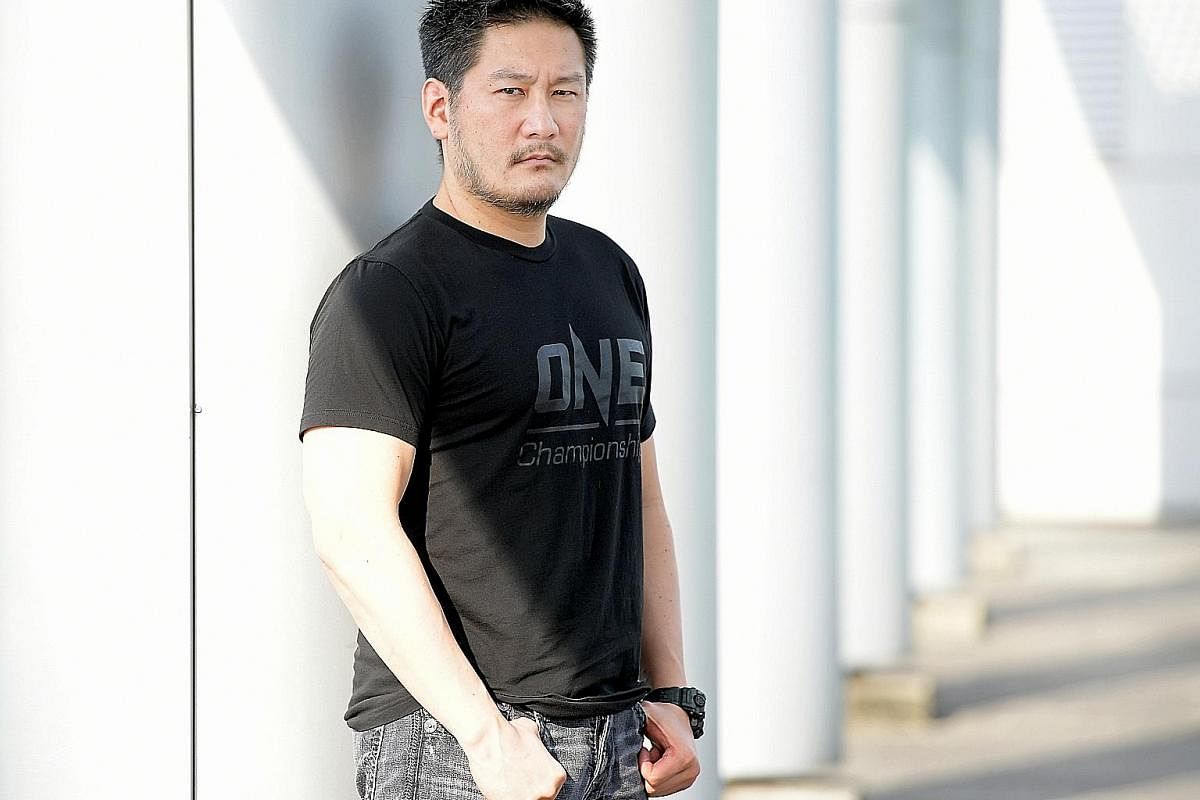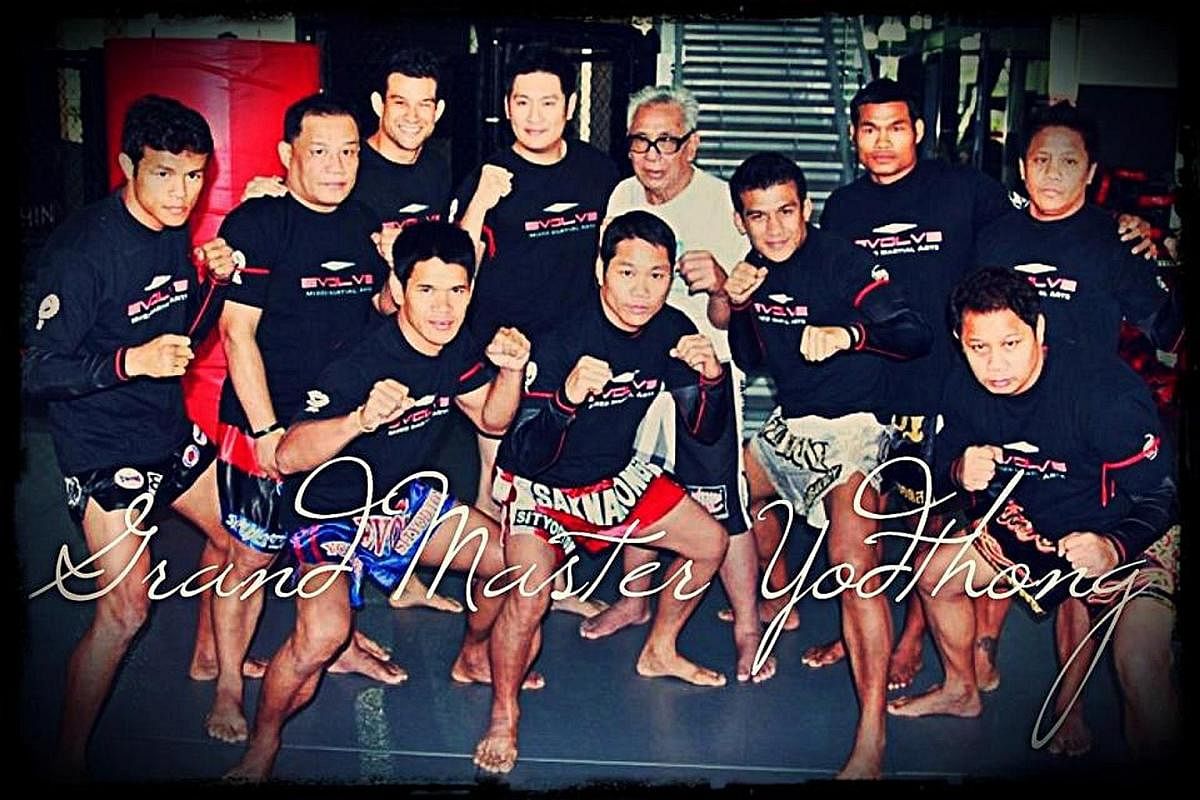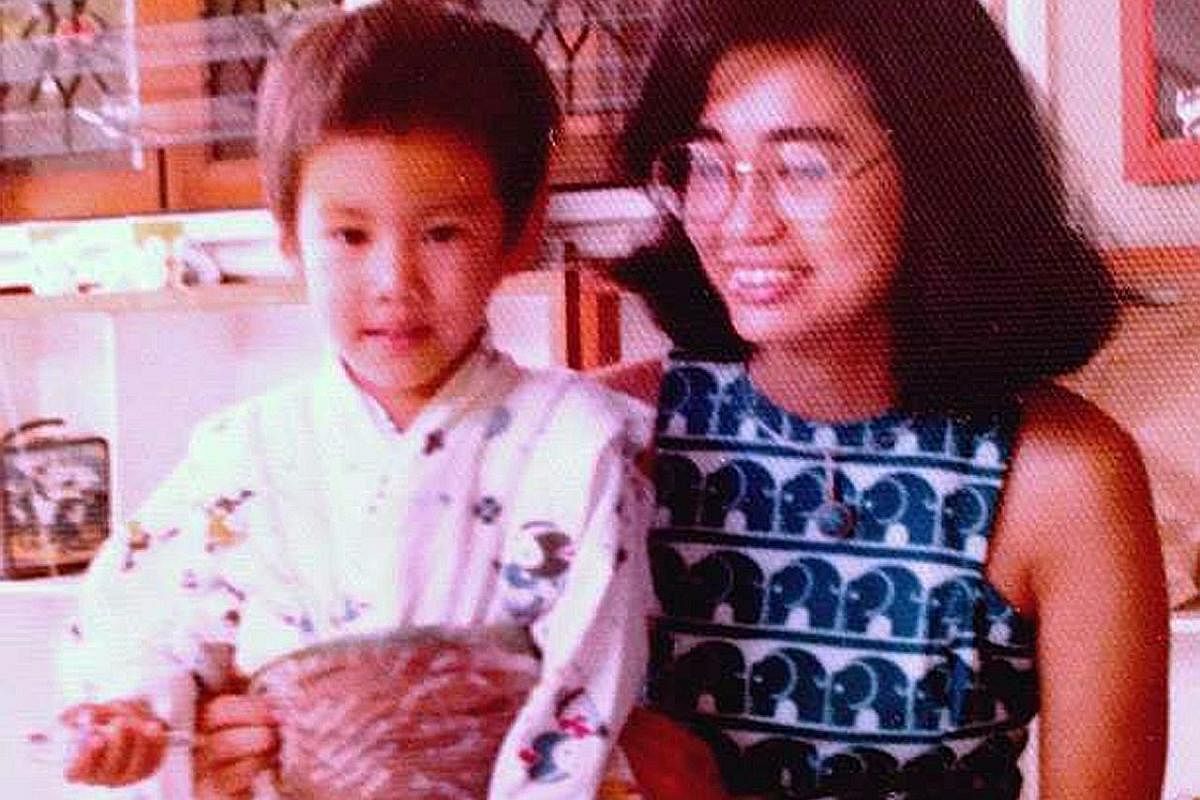The Life Interview With Chatri Sityodtong
The Life Interview with ONE Championship founder Chatri Sityodtong: Fighting to change lives
The founder-chairman of sports media property ONE Championship believes in the power of martial arts to make a difference in lives



Some years ago, Mr Chatri Sityodtong was sitting in a New York sushi restaurant.
The hedge fund manager had just enjoyed, in his words, "a record, bang-out year" that earned him tens of millions of dollars.
But he was unhappy when he had more reason than most to be cheered by riches. When he was young, his father was a property broker turned bankrupt, reduced to selling fruit on the street, with the family surviving on one meal a day.
The life of a Wall Street trader should have been especially sweet, but questions haunted him.
"What is the point of all this? I got to the top of the mountain, but money was not something I cared about," says the 45-year-old.
The thing he cares about is martial arts - honing his skill as a fighter and being around other fighters.
"I wanted to do something magnificent, I wanted to do something extraordinary."
His moment of clarity was distilled into a business plan. He observed that Asians spend billions of dollars on sports content from outside the region, but produce nothing Europeans or Americans want to buy.
He thought there was one sport, born and perfected in this part of the world, epitomised by global stars such as Jackie Chan and Bruce Lee, that might be a candidate for a global breakout.
Thus ONE Championship was born, founded in 2011 by Mr Chatri , with help from the Economic Development Board. Mr Chatri , the chairman and chief executive of ONE, picked Singapore because of its location and communications infrastructure.
ONE is now Asia's largest sports media property in electronic reach and match attendance. Its first match at the Singapore Indoor Stadium, held in September that year, drew 6,800 fans. These days, a match there will draw up to three times that number.
The private company has 350 fighters in its stable, with offices in most major Asian cities, including China. Last year, it organised 16 fights, held everywhere from Manila to Jakarta, from Changsha in China to Yangon in Myanmar. ONE reaches 118 countries through free-to-air, cable and paid video streams. In a recent match, one in four people in the Philippines tuned in.
In the West, the Las Vegas-based mixed martial arts media company Ultimate Fighting Championship (UFC) dominates and has a vast international television following. UFC also holds matches in Asia. ONE is the leader in this region, in stadium attendance and potential television audience reach.
Mr Chatri has plans to take ONE public in three years, a milestone that will better allow it to "unleash superheroes who will inspire millions".
He speaks with evangelical zeal about the power of martial arts to change lives and, at his other business, the Evolve MMA chain of gyms, everyone from a four-year- old to a 75-year-old retired doctor gets the chance to feel it, he says.
Not surprisingly, he is also a motivational speaker, a talent he displayed at a TEDx talk titled How To Achieve Your Greatness In Life.
Perhaps he did pick up a "change the world" mentality from his time in Silicon Valley, he says. With friends, he set up a software company, NextDoor Networks, that they later sold. But his passion runs deeper than just in manner of presentation, he says.
"If I look at my life, I owe a debt of gratitude to martial arts for pulling me out of poverty, for giving me a chance to do something with my life. Maybe destiny or fate made me go through poverty so I could understand humanity.
"One day in ONE Championship gives me more happiness than 10 years on Wall Street ever did," he says.
The son of a Thai father, Thaworn, and a Japanese mother, Michiyo, who met in Japan, where his father, an architect, went to university, Mr Chatri spent the first 18 years of his life in Bangkok.
"I was an average student, the kid who got suspended for fighting in high school. I got detention. I was a naughty kid," he says.
His father quit his job as an architect to start a real estate company during the Asian Tiger years of the 1980s. The family fortunes improved from "meagre" to "well-to- do", he says. They moved to a better apartment.
As a teen, he fell in love with muay thai, training with the revered Yodtong Senanan in Pattaya's Sityodtong Camp. He competed for a while, but ruled out a career as a professional after realising his talents lay elsewhere.
In accordance with tradition, masters of muay thai camps can bestow their camp's name on promising fighters. Yodtong gave the boy, whose birth surname is Trisiripisal, the name Sityodtong.
ONE with a warrior spirit
After the Asian financial crisis hit, Mr Chatri's family was forced to downgrade to a "concrete-floor shack". Soon after that, his father walked out on the family.
"After we went bankrupt, we became pariahs. Friends, relatives - everyone - disappeared from our lives, just like that," he says, snapping his fingers.
At the same time, the graduate in economics from Tufts University was offered a place at Harvard Business School.
Taking it up would be a big risk - what if he flunked? Not only would he return in shame, but he would also be stuck with student debt. His mother urged him to go there. The best hope for the family getting back on its feet lay in the United States, she told him.
He got his MBA in 1999, living on borrowed money and part-time jobs giving tuition, delivering Chinese food and teaching muay thai.
He sent money to his mother, but to better take care of her, he moved her into his dorm room at Harvard.
He spent the next decade in Silicon Valley and Wall Street.
The Harvard student, who ate his main daily meal at a US$4 buffet, soon earned enough to buy his mother an apartment in New York, where she now lives.
His younger brother Charlie, a hedge fund manager, also lives in the city.
He is married, but prefers to keep his wife's identity private.
He has more than made up for his family's financial losses, but his father's irresponsibility would not be made good so soon, he says.
In 2015, Mr Chatri went in search of the man who left a wife and two boys.
"I wanted to forgive him and to release myself from anger. I wanted him to know that he could have his peace. I wanted to ask him, 'Why?' Why did he abandon us, throw us away like garbage in our toughest time?"
He found the 73-year-old, poor and living alone in a small studio apartment. He found out that his father walked out because of the shame he felt over his failure to put food on the table.
Father and son have seen each other a few more times since then. The younger man sends money and is glad to have reconnected, but there is no turning back the clock, he says.
Normally articulate, Mr Chatri searches for words to describe his feelings.
"You can't repair 20-plus years of damage overnight... I feel we made peace with each other. But too much time has passed," he says.
Media entrepreneur Kamol Sukosol Clapp, 48, first met Mr Chatri in high school.
Speaking to The Straits Times on the telephone from Bangkok, he said that since the time he was a teen, muay thai had been his friend's "biggest passion ever".
The love of martial arts has been a constant in Mr Chatri's life, he says, as well as a sense that his life had to rise above the mundane.
Mr Kamol, known as Sukie in Thailand, has been a concert promoter, musician and television host. He is now president of the Thai arm of ONE Championship.
He remembers the two of them walking along a beach in 1999, just after his friend's time at Harvard.
"He told me, 'I am going to make it'. I remember the look of determination on his face," he says.
These days, Mr Chatri is still trying to make it - he is trying to make ONE Championship a regional household name, with the brand power of Formula One, ESPN or the English Premier League.
More than that, he wants it to be a force for good, spreading a message of health, sportsmanship and what he calls "warrior spirit" - the strength of mind that he says saved his life when things were at their bleakest.
The couple of hours he spends daily in the gym are still the highlight of his day. It is where he picks up techniques in Brazilian jiu-jitsu from trainers. And, no, they do not take it easy on him because he is the boss. To prove his point, he shows a picture of a gash on his forehead, sustained during one session. He looks at it proudly.
"All of society's pressures, categorisations of you disappear. On the mat, it doesn't matter if you are a CEO, janitor or engineer. You are just you. It equalises the world. That's what I love."
Join ST's Telegram channel and get the latest breaking news delivered to you.
A version of this article appeared in the print edition of The Straits Times on June 26, 2017, with the headline The Life Interview with ONE Championship founder Chatri Sityodtong. Subscribe

